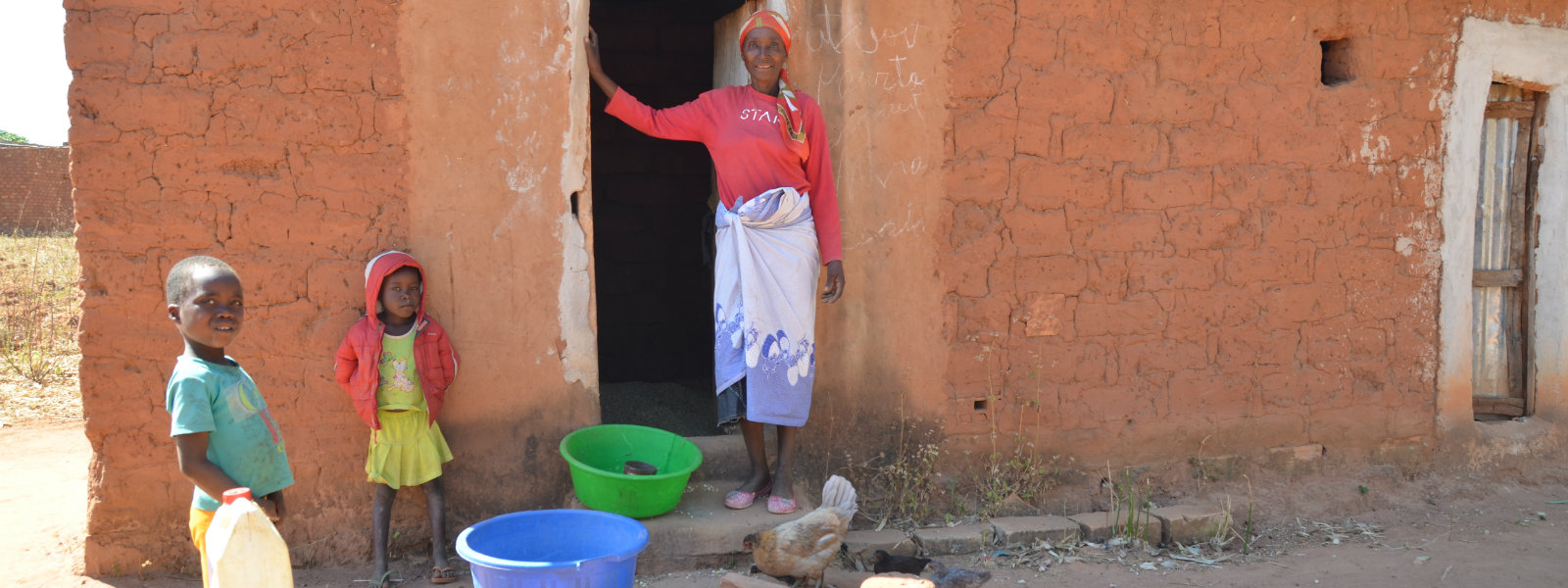One Woman Stories
Vihemba
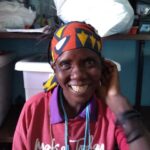 Vihemba was in labor with her sixth child, but after two days, the baby’s arm came out as well as the umbilical cord. Her aunt tried to pull the baby out by the arm but was unsuccessful. Vihemba’s family took her to one hospital, who sent her to a second hospital where they did a c-section. After that, her urine was running out by itself and one of her legs was so weak that she had trouble walking. She was shocked and was sure someone had cursed her. Since the river was not very close, it was hard to keep washing her clothes. Her family told that her husband would leave her. They took her to a diviner but that was useless. Vihemba’s grandmother had heard good things about the mission people visiting Tchincombe farm. Her husband wanted to help and took her to this farm where they met Dr. Steve Foster. They were delighted to hear CEML hospital could treat Vihemba’s problem.
Vihemba was in labor with her sixth child, but after two days, the baby’s arm came out as well as the umbilical cord. Her aunt tried to pull the baby out by the arm but was unsuccessful. Vihemba’s family took her to one hospital, who sent her to a second hospital where they did a c-section. After that, her urine was running out by itself and one of her legs was so weak that she had trouble walking. She was shocked and was sure someone had cursed her. Since the river was not very close, it was hard to keep washing her clothes. Her family told that her husband would leave her. They took her to a diviner but that was useless. Vihemba’s grandmother had heard good things about the mission people visiting Tchincombe farm. Her husband wanted to help and took her to this farm where they met Dr. Steve Foster. They were delighted to hear CEML hospital could treat Vihemba’s problem.Maria
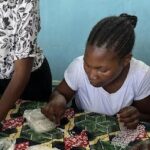 18-year-old Maria lives in a remote area of subsistence farming in Huila province. With her first baby, she was in labor for 3 days and was given tea made from roots. When there was still no progress, the local clinic in Chipindo sent her by ambulance to the nearest hospital that can do surgery, which is in Huambo province. There she had a cesarean section, but it was too late to save the baby. She noticed that she could no longer control her urine. On return to Chipindo, a nurse who had been to a presentation by the CEML Prevention nurses told Maria to go to CEML, and here she said that she found hope. She learned things that she never could imagine being able to do and she was blessed by the time that she spent here at CEML during her treatment. She was delighted to discover that the fistula was closed after her surgery.
18-year-old Maria lives in a remote area of subsistence farming in Huila province. With her first baby, she was in labor for 3 days and was given tea made from roots. When there was still no progress, the local clinic in Chipindo sent her by ambulance to the nearest hospital that can do surgery, which is in Huambo province. There she had a cesarean section, but it was too late to save the baby. She noticed that she could no longer control her urine. On return to Chipindo, a nurse who had been to a presentation by the CEML Prevention nurses told Maria to go to CEML, and here she said that she found hope. She learned things that she never could imagine being able to do and she was blessed by the time that she spent here at CEML during her treatment. She was delighted to discover that the fistula was closed after her surgery.Wuanumina
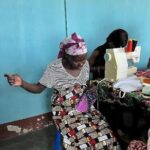 Wuanumina overheard two women chatting at the Humpata market: “At Dr. Estevão’s hospital, everything gets cured!” Immediately she thought, “Everything? Even this?” Twenty-three years ago, she had lost control of her urine after being in labor for 4 days and finally having a c-section. Her family tried to discourage her as they knew CEML was a private hospital. “Think of the cost!” Undeterred, Wanamina made up her mind and came.
Wuanumina overheard two women chatting at the Humpata market: “At Dr. Estevão’s hospital, everything gets cured!” Immediately she thought, “Everything? Even this?” Twenty-three years ago, she had lost control of her urine after being in labor for 4 days and finally having a c-section. Her family tried to discourage her as they knew CEML was a private hospital. “Think of the cost!” Undeterred, Wanamina made up her mind and came.Josefa
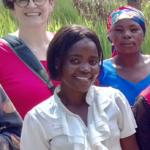 Update: Tragically, Josefa died in mid-June 2024. She had been sick for two weeks and sought medical advice, but the staff at the clinic did not have the proper tools or training to fully assess her health. They suspect she died from undiagnosed malaria. Josefa left behind her two children, ages 10 and 14, along with four brothers and her mom. Her husband left the family years ago when Josefa started to leak urine from her fistula. One of Josefa’s brothers is now raising Josefa’s children as his own.Josefa is the third sister we’ve lost since we started this journey in 2012. We do our work in honor of these sisters who have left a legacy of hope that others have carried and will carry with them.
Update: Tragically, Josefa died in mid-June 2024. She had been sick for two weeks and sought medical advice, but the staff at the clinic did not have the proper tools or training to fully assess her health. They suspect she died from undiagnosed malaria. Josefa left behind her two children, ages 10 and 14, along with four brothers and her mom. Her husband left the family years ago when Josefa started to leak urine from her fistula. One of Josefa’s brothers is now raising Josefa’s children as his own.Josefa is the third sister we’ve lost since we started this journey in 2012. We do our work in honor of these sisters who have left a legacy of hope that others have carried and will carry with them.
Original Story: We met Josefa during our March 2023 trip to Angola. Josefa was an answer to prayer. Josefa was an answer to hope. Josefa was an Ambassadora, but her journey there was not an easy one. Josefa suffered from obstetric fistula for 10 years. She grew so desperate that she contemplated killing herself. One Sunday morning, she told her mom that she was going to end her life and her mom suggested Josepha go to church one more time. Josepha’s mom said maybe God has someone for you there. Much to Josefa’s surprise and eventual joy, Josefa met Natalia, another Ambassadora, at church that morning. Josefa learned that her leaking was a medical issue and that she could seek treatment and healing. This was new information for Josefa. Josefa had new hope. Due to a lack of funds and phone, it took Josefa a while to acquire the funds for the surgery, but when she did, she was healed.
Most women with obstetric fistula are shunned by their families and communities. They are told again and again that they have no value, that they have no purpose on this earth. However, when our sisters like Josefa come for treatment at a hospital or fistula treatment camp, they are loved and reminded of their priceless value. When they receive healing, they cannot help but tell everyone about their experience. They become Ambassadoras.
Josefa was an answer to prayer and hope, because we have hoped and prayed for Ambassadors in Angola for many years. Implementing a program never felt right. But this organic growth, this natural development of Ambassadoras, has been a beautiful development in Angola. Having Ambassadoras is a critical step as we seek to prevent obstetric fistula. We also have Ambassadors, who are the husbands of our sisters.
We are so very thankful that Josefa did not give up. We are so thankful that Josefa was willing to give hope one more day. We know that every time Josefa shared her story with our sisters, those suffering from fistula and those at risk for fistula are encouraged to give hope one more day.
Rosa
 The Aftercare program, administered by our partners at CEML Hospital in Lubango, Angola empowers women recovering from fistula surgery with craft skills, gardening lessons, literacy/numeracy education, and teaching in local languages. Women who have suffered from fistula often face additional hardships, usually having been abandoned by their husbands and families and feeling unable to return to their villages. Left to provide for themselves in a context that is so different from the life they expected, they are deeply disadvantaged because of their lack of formal education and skills training.
The Aftercare program, administered by our partners at CEML Hospital in Lubango, Angola empowers women recovering from fistula surgery with craft skills, gardening lessons, literacy/numeracy education, and teaching in local languages. Women who have suffered from fistula often face additional hardships, usually having been abandoned by their husbands and families and feeling unable to return to their villages. Left to provide for themselves in a context that is so different from the life they expected, they are deeply disadvantaged because of their lack of formal education and skills training.Maryam
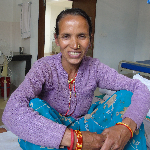 Maryam, a Nepalese sister, was married when still a young child, but waited five years in her Muslim parents’ home before joining her husband in his. At that time, she found out he had taken a second wife who already had three children. She was very unhappy about this, but by the age of 17, Maryam was expecting her own first baby. Despite trips to multiple facilities when her labor failed to progress, she labored for six days. At last, after a cesarean section she gave birth to a little girl who was stillborn. The doctor said that it would be very difficult for her to have another child, and she was left with a fistula, leaking urine, weak, and unable to walk by herself. Her in-laws were kind to her and cared for her, but her husband left her alone, avoiding spending time with her. The second wife went on to have seven sons and two daughters.
Maryam, a Nepalese sister, was married when still a young child, but waited five years in her Muslim parents’ home before joining her husband in his. At that time, she found out he had taken a second wife who already had three children. She was very unhappy about this, but by the age of 17, Maryam was expecting her own first baby. Despite trips to multiple facilities when her labor failed to progress, she labored for six days. At last, after a cesarean section she gave birth to a little girl who was stillborn. The doctor said that it would be very difficult for her to have another child, and she was left with a fistula, leaking urine, weak, and unable to walk by herself. Her in-laws were kind to her and cared for her, but her husband left her alone, avoiding spending time with her. The second wife went on to have seven sons and two daughters.Bayarmaa
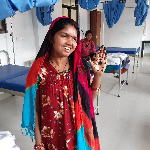 Bayarmaa was a 30-year old sister living in rural Kapilbastu, Nepal with her husband’s parents and family. Married at 20, she quickly became pregnant, but had a difficult labor at home and after many hours, managed to deliver the baby’s head, but the shoulders were stuck. She was carried to a health post, and then several other facilities, none of which could help. After four days of desperate travel, an unconscious Bayarmaa underwent a cesarean delivery and a stillborn baby was delivered. The treatment cost 80,000 Indian rupees, well more than $1,000.
Bayarmaa was a 30-year old sister living in rural Kapilbastu, Nepal with her husband’s parents and family. Married at 20, she quickly became pregnant, but had a difficult labor at home and after many hours, managed to deliver the baby’s head, but the shoulders were stuck. She was carried to a health post, and then several other facilities, none of which could help. After four days of desperate travel, an unconscious Bayarmaa underwent a cesarean delivery and a stillborn baby was delivered. The treatment cost 80,000 Indian rupees, well more than $1,000.Naneka
 Naneka was a 60-year old fistula patient who arrived to our partners in Surkhet, Nepal so unwell and poorly nourished that they could not immediately plan for her surgery. After some time and rest, she gained weight and was more physically ready for her operation. It was a success! But prior to sending her home and knowing that her current job of working in others’ fields carrying heavy loads would be unsuitable as she continued to recuperate, the team arranged for an income generation project for Naneka and her older sister whom she lived with. The pair received three months of funds to cover their food expenses and a plan to purchase and raise goats in their low-lying area. She also knew two other fistula patients who she planned to refer to the program, carrying forward the hope she has taken from her experience.
Naneka was a 60-year old fistula patient who arrived to our partners in Surkhet, Nepal so unwell and poorly nourished that they could not immediately plan for her surgery. After some time and rest, she gained weight and was more physically ready for her operation. It was a success! But prior to sending her home and knowing that her current job of working in others’ fields carrying heavy loads would be unsuitable as she continued to recuperate, the team arranged for an income generation project for Naneka and her older sister whom she lived with. The pair received three months of funds to cover their food expenses and a plan to purchase and raise goats in their low-lying area. She also knew two other fistula patients who she planned to refer to the program, carrying forward the hope she has taken from her experience.Mwiani
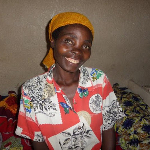 Mwiani was around 42 years old when she first made contact with the Sexual Gender-Based Violence (SGBV) Program administered by our partners, World Relief, in DR Congo. A widow who had lost ten children over the years to illness and war, Mwiani was seven months pregnant with her last child when six men found her alone in the woods and forced themselves on her, capturing and enslaving her for the next two months. They assaulted her daily. When she went into labor, the baby was noted to be breech, and the men pulled the child from her body. This caused a fistula to develop in Mwiani and the infant died. They left Mwiani to die too, but somehow she made it home, where she found only a family who abandoned her because of the stigma surrounding her experiences and her condition. Five unsuccessful repair attempts later, Mwiani at last met people at World Relief who connected her to a hospital that repaired her effectively, and was also connected to an SGBV group. Now, fully healed and going through counseling, she has hope for the future and her ability to feel joy again.
Mwiani was around 42 years old when she first made contact with the Sexual Gender-Based Violence (SGBV) Program administered by our partners, World Relief, in DR Congo. A widow who had lost ten children over the years to illness and war, Mwiani was seven months pregnant with her last child when six men found her alone in the woods and forced themselves on her, capturing and enslaving her for the next two months. They assaulted her daily. When she went into labor, the baby was noted to be breech, and the men pulled the child from her body. This caused a fistula to develop in Mwiani and the infant died. They left Mwiani to die too, but somehow she made it home, where she found only a family who abandoned her because of the stigma surrounding her experiences and her condition. Five unsuccessful repair attempts later, Mwiani at last met people at World Relief who connected her to a hospital that repaired her effectively, and was also connected to an SGBV group. Now, fully healed and going through counseling, she has hope for the future and her ability to feel joy again.Promesse
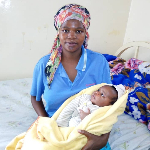 Twenty-year old Promesse was in trouble when her labor ran longer than usual prior to the birth of her first child. Her husband had been using a motorcycle to transport people for money, but when the bike was stolen, its owner had Promesse’s husband sent to jail. With both her wellbeing and the life of her child in danger, Promesse turned to the Wellness Clinic in Goma, DR Congo (HFOS partner through the Jericho Road Community Health Center) for help, even though she did not have the financial means to pay. Because of the maternal health fund our investors – many of you! – have so generously funded, Promesse received a cesarean delivery free of charge and was able to bring home a healthy baby, preventing birth injury for herself (such as a fistula) and risk to her baby.
Twenty-year old Promesse was in trouble when her labor ran longer than usual prior to the birth of her first child. Her husband had been using a motorcycle to transport people for money, but when the bike was stolen, its owner had Promesse’s husband sent to jail. With both her wellbeing and the life of her child in danger, Promesse turned to the Wellness Clinic in Goma, DR Congo (HFOS partner through the Jericho Road Community Health Center) for help, even though she did not have the financial means to pay. Because of the maternal health fund our investors – many of you! – have so generously funded, Promesse received a cesarean delivery free of charge and was able to bring home a healthy baby, preventing birth injury for herself (such as a fistula) and risk to her baby.Leocadia
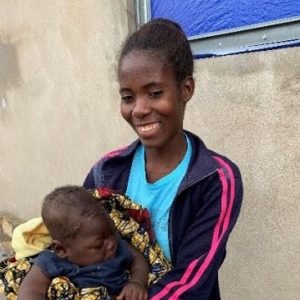 18 year-old Leocadia gave birth to her first son in August 2019, but ended up with a fistula due to obstructed labor. Leocadia lives only three hours from a hospital, but still labored for three days because the first two health posts she visited were unable to provide her with the care she needed. She had to wait overnight at the second health post because the ambulance required to take her to Lubango did not have headlights and couldn’t bring her in the dark – a painful example of a simple fix being a major barrier to emergency maternal care. The head of her son, Paul, was showing throughout the three day labor – it is truly a miracle that this baby is alive. After she began to leak, she arrived at Central Evangelical Medical Center of Lubango (CEML) in Angola for fistula treatment with both her mother and mother-in-law – a level of support that so many of our sisters are not lucky enough to have. Leocadia went home DRY in March 2020.
18 year-old Leocadia gave birth to her first son in August 2019, but ended up with a fistula due to obstructed labor. Leocadia lives only three hours from a hospital, but still labored for three days because the first two health posts she visited were unable to provide her with the care she needed. She had to wait overnight at the second health post because the ambulance required to take her to Lubango did not have headlights and couldn’t bring her in the dark – a painful example of a simple fix being a major barrier to emergency maternal care. The head of her son, Paul, was showing throughout the three day labor – it is truly a miracle that this baby is alive. After she began to leak, she arrived at Central Evangelical Medical Center of Lubango (CEML) in Angola for fistula treatment with both her mother and mother-in-law – a level of support that so many of our sisters are not lucky enough to have. Leocadia went home DRY in March 2020.Milja
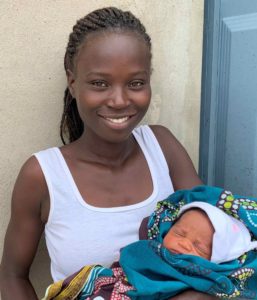 After losing her first baby, Milja’s resulting fistula was repaired and she was dry! Due to the high risk of fistula recurrence in future labors, she was scheduled for a cesarean delivery with our partner, Central Evangelical Medical Center of Lubango (CEML) in Angola for her next pregnancy. When she went into labor early, an emergency medical team brought her to CEML and she safely brought a new baby into the world!
After losing her first baby, Milja’s resulting fistula was repaired and she was dry! Due to the high risk of fistula recurrence in future labors, she was scheduled for a cesarean delivery with our partner, Central Evangelical Medical Center of Lubango (CEML) in Angola for her next pregnancy. When she went into labor early, an emergency medical team brought her to CEML and she safely brought a new baby into the world!Binsa
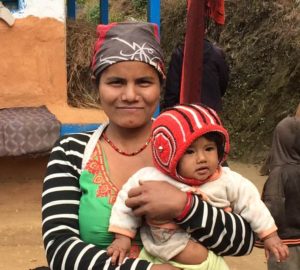 Binsa was known to our Nepalese partners with the Fistula Outreach Program due to having developed a fistula from a birth in 2018. At that time, when the Female Community Health Worker (FCHV) was unable to help deliver the baby (who was breech, feet first), Binsa’s family carried her 3 hours to a health post. When it was clear Binsa needed more help than this post could provide, she rode the bus for 3-4 more hours and then gave birth at a hospital near the Fistula Center in Surkhet, Nepal. Having eventually been healed from fistula and heeding the suggestion that she only deliver via cesarean in the future, she delivered her most recent baby (see the picture) via planned cesarean delivery again in Surkhet. Binsa had moved to Surkhet a full month before her due date to ensure a safe delivery. Binsa has shared her experience with her FCHV and her community, and now more and more women are choosing to deliver at the hospital in Surkhet when possible. Thinking about Binsa employing and sharing her new knowledge about safe deliveries gives us hope that more babies and mothers will experience delivery without injury or death.
Binsa was known to our Nepalese partners with the Fistula Outreach Program due to having developed a fistula from a birth in 2018. At that time, when the Female Community Health Worker (FCHV) was unable to help deliver the baby (who was breech, feet first), Binsa’s family carried her 3 hours to a health post. When it was clear Binsa needed more help than this post could provide, she rode the bus for 3-4 more hours and then gave birth at a hospital near the Fistula Center in Surkhet, Nepal. Having eventually been healed from fistula and heeding the suggestion that she only deliver via cesarean in the future, she delivered her most recent baby (see the picture) via planned cesarean delivery again in Surkhet. Binsa had moved to Surkhet a full month before her due date to ensure a safe delivery. Binsa has shared her experience with her FCHV and her community, and now more and more women are choosing to deliver at the hospital in Surkhet when possible. Thinking about Binsa employing and sharing her new knowledge about safe deliveries gives us hope that more babies and mothers will experience delivery without injury or death.Gloria
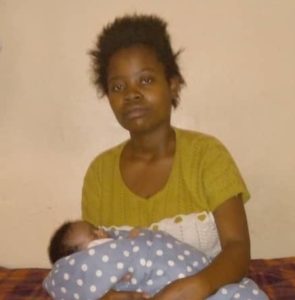 Our partners at the Wellness Clinic in Goma, DR Congo, have used the Maternal Health Fund our generous investors have created thousands of times since it was begun in 2018. Women using the fund can have assisted vaginal deliveries, prenatal care, and cesarean sections paid in part or in full as needed to keep them and their babies safe. One such woman who benefited from this maternal health fund was 18-year old Gloria. Her story is heart-breaking – she lost both of her parents to the atrocities of war in her village. While living with her uncle, Gloria was raped and became pregnant. With no one to pay her hospital fees, Gloria was a recipient of full coverage for her cesarean delivery because of your generosity. She is pictured here with a healthy baby. Despite all of the sadness and loss in her life, we have great hope that this was the beginning of a happier and healthier chapter for Gloria and her beautiful child.
Our partners at the Wellness Clinic in Goma, DR Congo, have used the Maternal Health Fund our generous investors have created thousands of times since it was begun in 2018. Women using the fund can have assisted vaginal deliveries, prenatal care, and cesarean sections paid in part or in full as needed to keep them and their babies safe. One such woman who benefited from this maternal health fund was 18-year old Gloria. Her story is heart-breaking – she lost both of her parents to the atrocities of war in her village. While living with her uncle, Gloria was raped and became pregnant. With no one to pay her hospital fees, Gloria was a recipient of full coverage for her cesarean delivery because of your generosity. She is pictured here with a healthy baby. Despite all of the sadness and loss in her life, we have great hope that this was the beginning of a happier and healthier chapter for Gloria and her beautiful child.Tena
 Tena is a fistula survivor. She was recently treated at our partner hospital, Central Evangelical Medical Center of Lubango (CEML) in Angola, coming from the province of Bie with her cousin, who also had a fistula. The women received word of the possibility of a surgical repair from a male pastor who had attended a Fistula Prevention and Awareness session held by the traveling CEML Prevention Team that is funded by Hope for Our Sisters.Tena had her fistula for two years after her sixth delivery, a cesarean at the provincial hospital following a one-day labor. The baby, sadly, was stillborn. This was Tena’s second lost child of her six. Her fistula repair surgery, thankfully, was successful on the first attempt. She expressed her gratitude repeatedly to the CEML staff, and said she knew of more women with fistula. She wanted to go home and tell them about the possibility of finding healing and restoration at the hospital. She will be generating hope as she shares this new hope!Tena would have been a wonderful Aftercare program participant if time had allowed – she only attended school for one year, so her greatest wish is to learn to read and write. We are so fortunate to partner with resilient sisters and the CEML Hospital staff and be inspired by stories like Tena’s.
Tena is a fistula survivor. She was recently treated at our partner hospital, Central Evangelical Medical Center of Lubango (CEML) in Angola, coming from the province of Bie with her cousin, who also had a fistula. The women received word of the possibility of a surgical repair from a male pastor who had attended a Fistula Prevention and Awareness session held by the traveling CEML Prevention Team that is funded by Hope for Our Sisters.Tena had her fistula for two years after her sixth delivery, a cesarean at the provincial hospital following a one-day labor. The baby, sadly, was stillborn. This was Tena’s second lost child of her six. Her fistula repair surgery, thankfully, was successful on the first attempt. She expressed her gratitude repeatedly to the CEML staff, and said she knew of more women with fistula. She wanted to go home and tell them about the possibility of finding healing and restoration at the hospital. She will be generating hope as she shares this new hope!Tena would have been a wonderful Aftercare program participant if time had allowed – she only attended school for one year, so her greatest wish is to learn to read and write. We are so fortunate to partner with resilient sisters and the CEML Hospital staff and be inspired by stories like Tena’s.